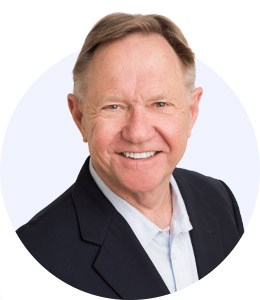As a leader, do I bring the needed enthusiasm to those I meet? Do I express optimism about the future? Lately, these are questions I’ve been thinking about a lot.
With each of my books, columns, articles, podcasts, and presentations, I hold up the self-awareness mirror. The question I ask myself is: How well am I following what I recommend to others? Sharing best practices in leadership provides such an opportunity. It is normal for me to come back from a session and discuss how my own companies are doing. My message is always, “We must eat our own cooking,” meaning we need to have in place what we are suggesting to others. Additional learning comes from hearing about the experiences of others.
I was recently part of Sharp HealthCare’s leadership sessions. Prior to my presentations, I was fortunate to watch Chris Howard, the president/CEO, go over the organization’s results for the year. Chris brought great optimism to his presentation. He connected The Sharp Experience to the organization’s roots, talked about the present situation, and outlined future steps to be taken. His authenticity is so evident. My mirror view said to me that I need to be more optimistic in communicating with my own organizations. Chris addressed tough issues in a caring manner without shying away from accountability.
I then attended a board retreat for the Commission on Accreditation of Healthcare Management Education (CAHME). I am a board member for this organization, which is the accrediting body for graduate programs in healthcare management in the U.S. and Canada. I am impressed with the amount of enthusiasm and optimism Anthony Stanowski, the president/CEO of CAHME, brought to the retreat.
This observation of the importance of enthusiasm and optimism carries over to watching sports. It is common for a video to be made that shows the coach of the winning team going into the locker room. Usually, the players are celebrating, and then the coach comes in to dance, sing, cheer, etc. While I don’t think all the coaches enjoy being doused with water, or maybe enthusiastically dancing, they do it. The players get a kick out of it.
In all the above situations, the fact that leaders demonstrate enthusiasm and optimism does not mean there is no accountability. Quite the opposite. Leaders need to have a variety of skills. Yet no leader is a natural in every aspect of leadership. It is not unusual at workshops to present actions that some are not comfortable with. I then share that I have never read a description of leadership that says to do only things that are comfortable. The most effective people learn to do what is not comfortable. Why? It helps the organization achieve its goals.
A few tips:
Bring enthusiasm to your role. Ask yourself: When I enter a room, do I create energy? I am not saying that every time you enter each room you must enter like a winning coach. However, I do believe that people can feel the enthusiasm generated by a leader.
Be optimistic. I admire many people, and one of them is the current University of Kansas football coach, Lance Leipold. He and I go back to the University of Wisconsin-Whitewater, which I attended. In the past, KU never had a great reputation for football. Today things have changed, and they are winning. Lance is highly regarded for turning the program around.
The first year Lance served as coach for the Kansas Jayhawks was brutal. They won two games and lost ten. The program was in such bad shape that people were excited for the two wins! At times during that first year, the team would be way behind at halftime, yet during interviews on the way to the locker room, Lance would be optimistic. He provided what the team needed at the time.
Share why you’re optimistic in times of challenge. People are smart enough to know the situation. As a leader, you would not be in your role if you did not believe better days are ahead. Share why you see the light at the end of the tunnel. If you don’t see the light, neither will others.
When times are good, celebrate and use that positive energy to push for more. My experience is when results are not there, people need more compassion and love. When the organization is doing well, it is a perfect time to let the good feelings last for a while, then push for the next level. The best performers relish the push to be better.
I know that for many, these are difficult times. There are staff shortages, and the cost of goods is higher. Revenue is down while expenses are up. These are times that separate good leaders from great ones.
The best leaders lead with enthusiasm and informed optimism. My commitment is to be more enthusiastic and optimistic and to demonstrate these qualities every chance I get. Next time you see me at a workshop, let’s dance.







